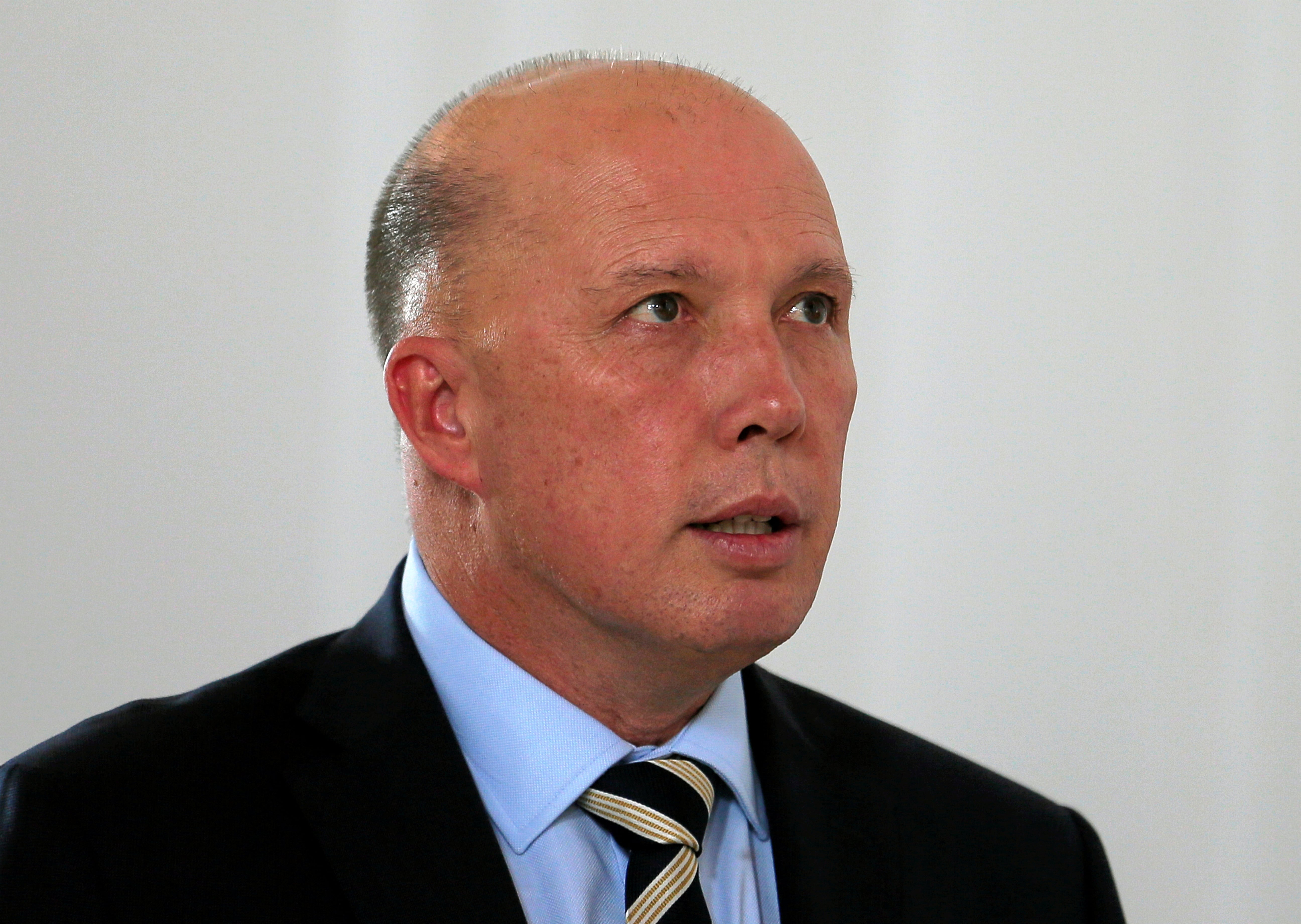Senior Australian minister says China is behaving badly, draws rebuke
 Australian Minister of Home Affairs Peter Dutton inspects the St.Sebastian’s church where two Australian citizens died in the Easter Sunday bombing, during his visit in Negombo, Sri Lanka June 3, 2019. (Photo: Reuters)
Australian Minister of Home Affairs Peter Dutton inspects the St.Sebastian’s church where two Australian citizens died in the Easter Sunday bombing, during his visit in Negombo, Sri Lanka June 3, 2019. (Photo: Reuters) SYDNEY – A senior Australian government minister has said China was behaving in a way that was inconsistent with Australian values by targeting political parties and universities in Australia, drawing a sharp rebuke from China’s embassy.
Relations between the important trading partners have deteriorated in recent years amid accusations that China is meddling in Australian domestic affairs and Australian fears that China is seeking undue influence in the Pacific region.
Australian lawmakers had sought to improve the relationship by refraining from public criticism of China but Peter Dutton, the minister for home affairs, said Australia would not be silent despite their commercial relations.
China is Australia’s largest trading partner, with bilateral trade worth more than $180 billion last year.
“We have a very important trading relationship with China – incredibly important,” Dutton told reporters in Canberra.
“But we are not going to allow university students to be unduly influenced, we are not going to allow theft of intellectual property, and we are not going to allow our government bodies or non-government bodies to be hacked into,” he said.
China’s embassy in Canberra called the remarks “irrational … shocking and baseless” in a statement on its website, adding that they constituted “an outright provocation to the Chinese people”.
“Such ridiculous rhetoric severely harms the mutual trust between China and Australia and betrays the common interests of the two peoples,” the embassy said.
Australian Prime Minister Scott Morrison urged calm on Saturday.
“I would warn against any sort of over-analysis or over-reaction to those comments because they just simply reflect that we’re two different countries,” Morrison told reporters in Fiji in televised remarks.
Australia and China have much in common, Morrison added.
“That’s why I think our relationship with China will always remain positive, because it’s focused on the things we agree on and that benefit each country, not on the areas that I think there are clear differences. And of course there are clear differences,” he said.
China has previously denied any improper activities, accusing Australia of adopting a “Cold War mentality”.
Reuters reported this month that Australian intelligence had determined China was responsible for a cyberattack on the national parliament and three largest political parties before a general election in May, according to five people with direct knowledge of the matter.
China’s Foreign Ministry denied involvement in any hacking attacks and said the internet was full of theories that were hard to trace.
Hackers were also targeting its most prestigious university, an official report by the Australian National University (ANU) showed, which stoked fears that China could influence research and students.
The ANU said last week its investigators were unable to identify who was responsible for the cyberattack.
Foreign students are worth about A$35 billion a year to the Australian economy, with Chinese students accounting for about a third of that figure.
Australian universities are financially dependent on overseas students, raising fears that foreign governments could exert undue influence.
As a result, Australian universities will now be required to work with security agencies to ensure they guard against undue foreign interference.
Reuters



